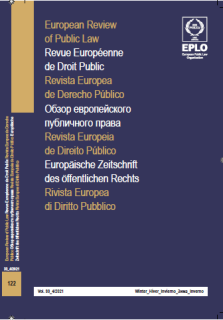
Blockchain Use Cases in the Public Sector
Lawyer, Ph.D. candidate at the University of Bucharest and the University of A Coruna, Bucharest/A Coruna, Romania/Spain, teaching assistant Faculty of Law and Administrative Sciences,
“Ştefan cel Mare” the University of Suceava -
raluca.onufreiciuc@fdsa.usv.ro / onufreiciuc.raluca@drept.unibuc.ro / raluca.onufreiciuc@udc.es
Ph.D., Lawyer at “Stanescu Lorena-Elena”-Law Office, lorena@stanescuandpartners.com
Public sector institutions and governments around the world are under increasing pressure to reconcile critical, and at times contradictory, expectations: to provide improved public services citizen-oriented with minimal costs and maximized efficiency. In the journey of looking for solutions, the worldwide adoption of blockchain has awakened dynamic expectations for countries to be part of the innovation ecosystem and co-create value with their constituents. The purpose of this article is to investigate the potential uses of distributed ledger technologies (“DLT”) such as blockchain in public administration, and includes an overview of the state of global blockchain initiatives. Further on, based on inspiring proof of concepts of governmental blockchain initiatives, we outline the benefits and challenges of institutional complexities. After all, blockchain adoption should not be a goal in itself, but an instrument to benefit the social structure we live in.
Les institutions du secteur public et les gouvernements du monde entier subissent une pression croissante pour concilier des attentes critiques, parfois contradictoires: fournir des services publics améliorés pour les citoyens, à des coûts minimes et avec une efficacité maximale. Dans le cadre de la recherche de solutions, l’adoption mondiale de la blockchain a éveillé de vives attentes concernant l’intégration des pays à l’écosystème de l’innovation, pour qu’ils co-créent de la valeur avec leurs administrés. Cet article étudie les utilisations potentielles des technologies des registres distribués (DLT), telles que la blockchain dans l’administration publique, et donne un aperçu de l’état des initiatives mondiales en matière de blockchain. En outre, sur la base de preuves convaincantes d'initiatives gouvernementales en matière de blockchain, il décrit les avantages et les défis des complexités institutionnelles. Après tout, l’adoption de la blockchain ne devrait pas être un objectif en soi, mais un instrument pour profiter à la structure sociale dans laquelle nous vivons.





















